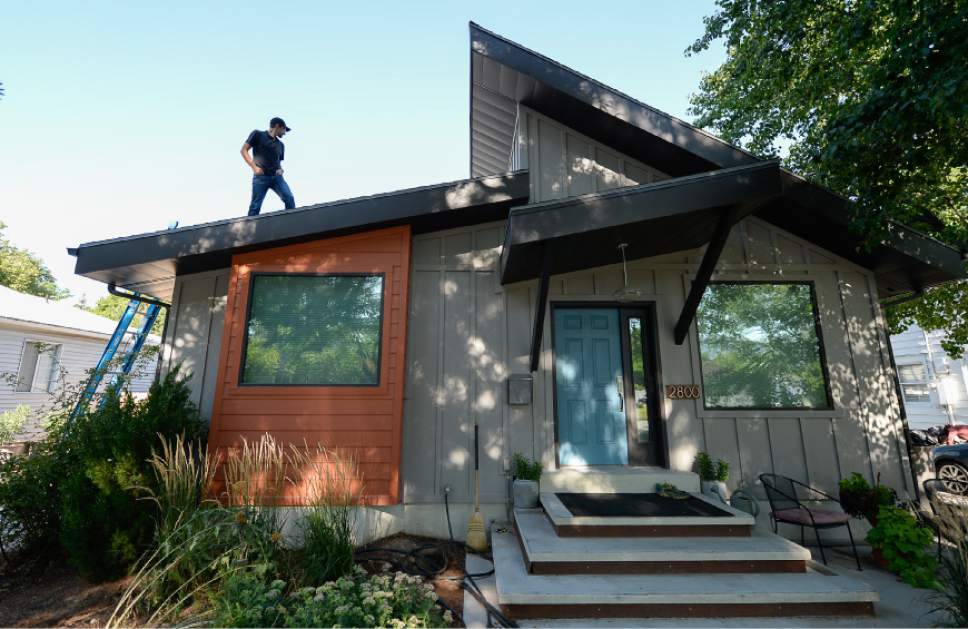This is an archived article that was published on sltrib.com in 2016, and information in the article may be outdated. It is provided only for personal research purposes and may not be reprinted.
If you put solar panels on your house and generate enough electricity to sell it to the power company to distribute to your neighbors, are you benefitting society?
Probably, but exactly how much is turning into a mighty difficult question.
Rocky Mountain Power, providers of electricity to most of Utah, rolled out its new formula for "net metering" customers, a small but fast growing group of homeowners who put solar panels on their roofs to power their own houses. When those panels produce more electricity than the house is consuming, the law requires that the utility buy that "net" energy for use by other customers.
Right now, net metering customers have all the same power rates that non-solar customers have, but Rocky Mountain has argued that net meterers, because they buy so little power, aren't paying their fair share for maintaining Rocky Mountain's power grid.
So the power company has developed a complicated billing formula that will raise rates for rooftop solar customers, and that has the burgeoning solar industry crying foul. They say the higher rates could effectively kill their industry, including the jobs it provides, and slow down our necessary conversion to renewable energy. Rooftop solar advocates also point out that they're not the only ones who don't use much power. Why aren't they making other low consumers pay more for the grid?
For their part, Rocky Mountain points out that the company is not relying on rooftop solar to move its customers to renewable energy. The company is now purchasing far more solar power from large-scale solar generators in southern Utah than from net meterers — and at a price below what they are paying the rooftop generators for their excess.
In other words, the rooftop folks can claim they're improving the environment, but they're not the only way to do that. In fact, when solar customers have been surveyed about why they did it, there are three main motivations: 1) because it saves money, 2) because it cleans up the environment, and 3) because they can be energy independent.
Only one of those is a societal benefit. For the other two, rooftop solar customers are looking out for themselves.
Still, there is good reason to believe that Rocky Mountain's study of the question, which is the basis for their rate request, is not giving rooftop solar enough credit. Other states have looked at this question, and they have tended to find more societal benefits to net metering, according to a Brookings Institution report in May. Only one of seven states thought that net meterers cost other customers more than they benefit them.
The Utah Public Service Commission has to decide on Rocky Mountain's request, and it has a responsibility to provide fairness to all electrical customers. To do that, they need more than Rocky Mountain's justification. Let a broader base of stakeholders look at this question before acting.



